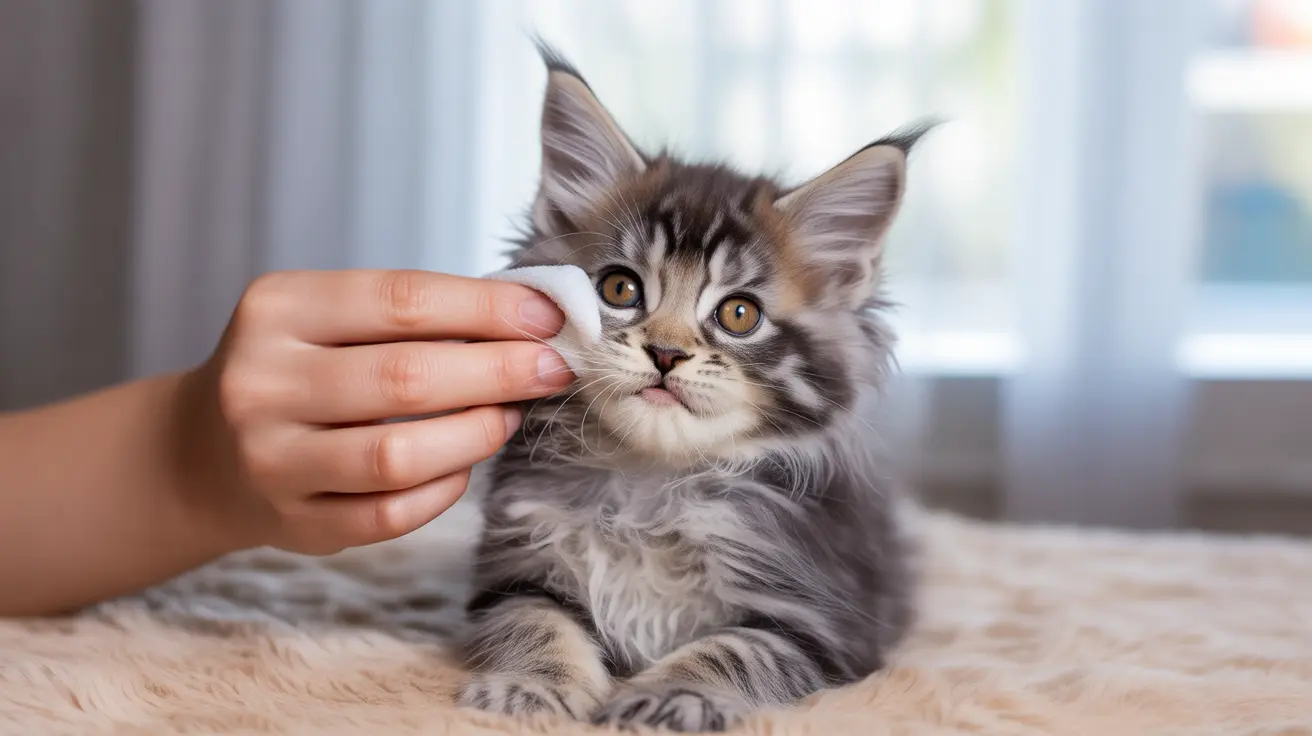When it comes to caring for newborn kittens, eye infections are a common concern that requires prompt attention and proper treatment. These infections, medically known as ophthalmia neonatorum, typically develop between 7-14 days after birth and can significantly impact a kitten's health and vision if left untreated.
Understanding the causes, symptoms, and treatment options for kitten eye infections is crucial for anyone caring for these vulnerable young animals. This comprehensive guide will walk you through everything you need to know about protecting your newborn kitten's eye health.
Common Causes of Eye Infections in Newborn Kittens
Newborn kittens are particularly susceptible to eye infections, which can stem from various sources. The most common cause is bacterial transmission from the mother cat during birth, particularly from Staphylococcus and Streptococcus species present in the birth canal.
Viral infections, especially feline herpesvirus (FHV-1), are another significant cause of eye problems in kittens. These infections often accompany upper respiratory infections and can be highly contagious among littermates.
Recognizing the Signs of Eye Infections
Early detection of eye infections is crucial for successful treatment. Watch for these key symptoms:
- Swollen or puffy eyelids
- Discharge (clear, yellow, or green) seeping from under the eyelids
- Crusting around the eyes
- Persistent closure of eyes beyond 14 days of age
- Redness and inflammation around the eye area
- Accompanying symptoms like sneezing or nasal discharge
Diagnosis and Treatment Approaches
Veterinary diagnosis typically involves a thorough physical examination of both the kitten and mother. The vet will carefully clean and examine the affected eyes, potentially using fluorescein dye tests to check for corneal damage.
Treatment usually consists of:
- Topical antibiotic ointments or eye drops
- Gentle cleaning with warm water several times daily
- Possible oral antibiotics for severe cases
- Anti-inflammatory medications when needed
- L-lysine supplements for cases involving herpesvirus
Prevention and Long-term Care
Preventing eye infections in newborn kittens starts with proper prenatal care for the mother cat and maintaining a clean environment. Regular monitoring of kittens during their first weeks of life is essential for early detection of any problems.
Long-term prognosis is generally good when infections are treated promptly, though some kittens may experience recurring issues, particularly with viral infections.
Frequently Asked Questions
What are the common causes of eye infections in newborn kittens?
Eye infections in newborn kittens are primarily caused by bacterial transmission during birth, viral infections (especially feline herpesvirus), and occasionally fungal or protozoal infections. Poor environmental conditions can increase infection risk.
How do I recognize the signs of an eye infection in a kitten whose eyes are still closed?
Look for swelling of the eyelids, discharge seeping from under the closed eyelids, and crusting around the eye area. The area may feel warm to the touch, and the kitten might show signs of discomfort.
What is the typical treatment for bacterial eye infections in kittens?
Treatment typically involves topical antibiotic ointments or eye drops applied directly to the affected eyes for 1-2 weeks, combined with gentle cleaning using warm water. Severe cases may require oral antibiotics.
Can kitten eye infections lead to long-term vision problems if left untreated?
Yes, untreated eye infections can lead to serious complications including permanent scarring, corneal damage, and even blindness. Prompt veterinary treatment is essential to prevent long-term vision problems.
How can I prevent eye infections in newborn kittens through proper care and hygiene?
Prevention involves maintaining clean living conditions, ensuring good maternal health, proper vaccination of the mother cat, regular monitoring of kittens' eyes, and practicing good hand hygiene when handling kittens.
Remember, early intervention is key when dealing with kitten eye infections. If you notice any signs of eye problems in your newborn kitten, contact your veterinarian immediately for proper diagnosis and treatment.






